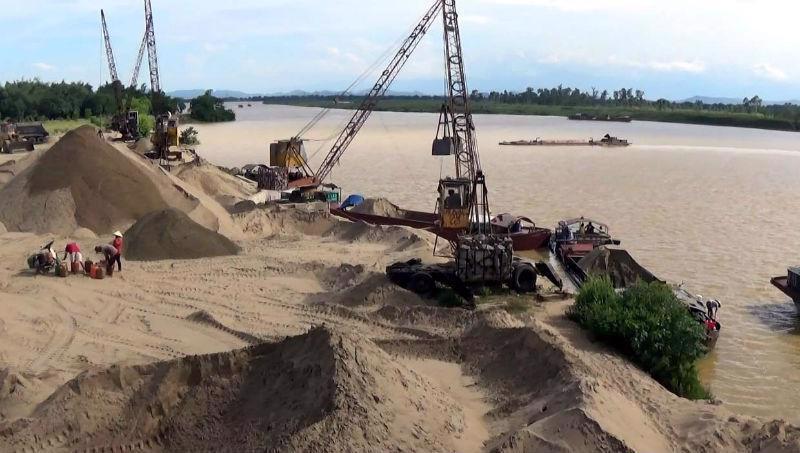Hanoi strengthens management of natural resources
The Law on Geology and Minerals, set to take effect in July 2025, is expected to improve the oversight of mining activities.
THE HANOI TIMES — Hanoi is stepping up efforts to strengthen the management of mineral reserves to prevent the loss of resources and protect the natural environment.

Sand mining activities in Ba Vi District, Hanoi. Photo: The Hanoi Times
According to the Hanoi Department of Agriculture and Environment, the city currently has over 10 licensed sites for soil, sand, and stone mining.In addition to disseminating directives from higher authorities, the city has instructed specialized agencies and regulatory bodies to conduct regular inspections, enforce compliance, and impose severe penalties for illegal mining.
They have worked together to promote awareness of the Law on Minerals among district authorities and mining companies. Local governments have asked land management officials, police, and community organizations to conduct inspections and monitoring to deal with cases of individuals or organizations using land reclamation or exploration as a pretext for illegal mining.
In 2024 alone, Hanoi police handled hundreds of cases involving illegal resource extraction and trade.
Hoang Anh Tuan, Head of Dong Anh's Division of Agriculture and Environment, said the district has been inspecting material storage sites, prosecuting illegal mining, and drawing up enforcement plans to restore illegal mining areas to their original condition.
Authorities have also set up checkpoints on roads leading to material depots and cracked down on overweight and oversized vehicles on levee roads.
Dong Anh District authorities have reprimanded and warned communes that fail to enforce regulations, removed illegal storage and docking sites, and reclaimed public land. In 2024, the district's cross-functional inspection teams and law enforcement agencies fined 10 perpetrators VND512 million (US$20,000) and confiscated 1,699 cubic meters of sand, a steel-hulled ship, and other water equipment. The violations included trading in construction materials of unknown origin, breaching dike protection regulations, and failing to comply with disaster prevention measures.
In addition to local efforts, Hanoi has tightened oversight of mineral resource management, especially as construction of the vital Ring Road 4 requires large amounts of soil, stone, gravel, and sand.
The municipal government has assigned the Department of Agriculture and Environment to implement the inspection and monitoring plan for licensed mining operations. The focus will be on verifying the boundaries, areas, capacities, and extraction methods of mining sites, as well as tracking actual production volumes under special regulations for the Ring Road 4 project.
Most licensed mining and processing businesses in Hanoi comply with legal and environmental regulations. However, some companies infringe the rules on exploration, extraction, processing and transportation.
The Law on Geology and Minerals, which will come into effect in July 2025, is expected to improve the oversight of mining activities. One of its key provisions is to give local authorities greater control over the management and use of mineral resources.











